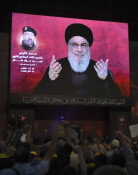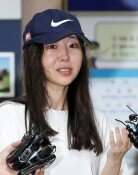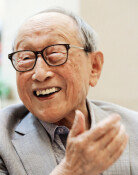Pledges to reject populism
Many aphorisms are worth noting in the book Naked Economics by British journalist Charles Wheelan, who wrote, In an economic downturn, fired workers are the biggest victim. He also said in his book, The pocketbook is mightier than the conscience; Competition is good only when it is unrelated to you; and, Brand sometimes matters more than the product itself. He also quoted a former U.S. senator as saying, If I had a choice between getting a round of applause by delivering a 26-second applause line and getting a round of boos by telling the truth, Id rather get the round of applause. This sarcastically pinpoints the tendency of politicians to get seduced by populism.
A civic alliance monitoring populist legislation comprising 34 groups, such as The Center for Free Enterprise and The Lawyers for Citizens, has received pledges to not push for populist laws and waste taxpayers money from 297 lawmakers from June 1. Only 13.5 percent or 40 lawmakers had signed the pledge as of Monday, when the ceremony for the pledge was held. Until the first deadline of June 17, only 16 legislators signed and 24 more joined after certain media outlets reported problems.
In the ruling Grand National Party, which holds the primary responsibility of state affairs, 37 lawmakers (21.9 percent) including Kang Gil-bu, Na Kyung-won, Na Sung-lin, Shin Ji-ho, Lee Gyeong-jae, Lee Jong-gu, Jo Jun-heok and Cha Myeong-jin promised not to pursue populist laws. Kim U-nam was the lone lawmaker among 87 members of the main opposition Democratic Party to sign the pledge and the minor conservative Liberty Forward Party had Lee Myeong-su only. The 40 lawmakers who made pledges, especially Kim U-nam and Lee Myeong-su from opposition parties, are outstanding. In contrast, influential politicians or former economy ministers who previously stressed the adverse effects of populism in the past looked away.
Strategy and Finance Minister Bahk Jae-wan gave a warning Tuesday in saying, It`s getting more difficult to manage fiscal health given the rising demand for expenditures for political events next year and the spread of fiscal populism. The government must act like the ant that thinks of how to prepare for the future instead of the grasshopper that thinks about how to spend money. The priority for the Korean economy next year should be how to control populist election pledges to prevent them from getting out of control.
Editorial Writer Kwon Sun-hwal (shkwon@donga.com)







